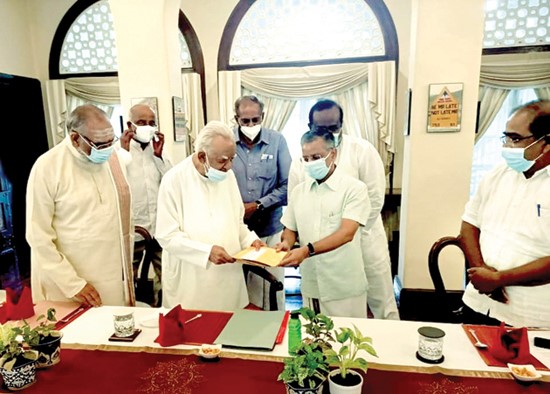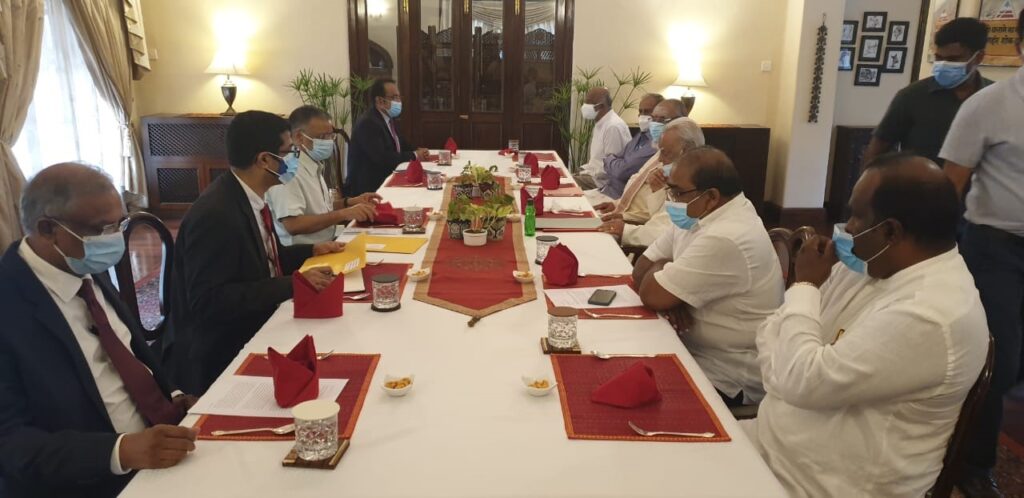by Nillanthan Maha on his blog, Jaffna, February 19, 2022
[translated from the Tamil by Google Translate with some edits]

Indian Prime Minister Narendra Modi is reportedly coming to Sri Lanka to attend the BIMSTEC conference** to be held in Colombo next month. To date, the Government of India has not officially confirmed.
If Narendra Modi were to come to Sri Lanka, would he meet all the six parties who have put forward a joint letter to him?
Only if he meets will those six parties have anything of substance from the demand put forward towards India. Otherwise, the accusation that the six parties have lost their character and surrendered to India, as the Tamil National People’s Front claims, will be correct. I have questions regarding the joint request sent to India by those six parties. My view is that the document should have been designed differently. But the fact that such a demand has been put forward by six parties with the relatively large number of parliamentarians on the Tamil side is also of strategic importance in terms of relations between Eelam Tamils and India. Why so?
Because in the first phase of the Eelam War, India provided training and weapons to the Eelam Tamils. India’s assistance was the main reason for the development of the Eelam War, – a small guerrilla struggle – into a full-scale war. But the Indo-Lanka Accord caused bitter bloodshed in the relationship between India and the Eelamites. A tactical alliance was formed between the LTTE and then-President Premadasa with the aim of removing the Indian Peace-Keeping Force from the country. As a result, both sides jointly asked the Indian peacekeeping force to leave the country. The Indian peacekeepers had to retreat when they were asked. This is a disgraceful exit as far as India is concerned.

This happened in 1989. Almost thirty-three years after this happened, whichever Tamil side asked the Indian Peace-Keeping Force to withdraw, a total of six parties, including a total of 11 elected representatives from the Tamil side, put forward a joint demand towards India. The parties say the demand is aimed at calling on India to intervene again on behalf of the Eelam Tamils.
In the first phase of the Eelam War, the Tamil people invested their hopes in India. As I said in last week’s article, the Eelam Tamils looked at the Indian central government as an ethnic, linguistic and cultural link between Tamil Nadu and themselves. But India did not approach the Eelamites that way. Instead it approached the Sri Lanka on the basis of its own empire interests. Since then there have been rifts in the relationship between Eelam Tamils and India. Now, almost thirty-four years later, eleven representatives of the Tamil people have put forward a joint demand towards India.
In the name of that demand, a new opportunity has opened up for India to intervene on behalf of the Tamil people in the politics of the island of Sri Lanka, as more and more of the popularly elected Tamil representatives have collectively called on India. Basically, India’s response to the six-party demand will determine the future politics of the six parties, as well as new opportunities for new strategies against China in the southern corner of India.
Therefore, it is important that the Indian Prime Minister visits the above six parties if he is to visit Sri Lanka. In this regard, India has a responsibility to show new bright signals in order to win the trust of the Eelamites. For more than three decades, India has been handling the government in Colombo. It is a global norm based on the structural relationship between state and state, but over the past four decades it has been proven that India employs the Eelam Tamils as a tool when it cannot handle the government in Colombo.
Therefore, India has a responsibility to give confidence to the Eelam Tamils in view of the suspicions and allegations of the Eelam Tamils that India is using them as a curry leaf or as a sacrifice. Is it possible for India to appoint a special envoy in this regard? Or will it repeatedly insist on a monopoly solution? In addition, there are uncertainties over the Indian-built cultural center in Jaffna, the further development of the Palaly airport, and the ferry service between Kankesanthurai and Karaikal.
Obstacles to the opening of this cultural center, which is the tallest public building in Jaffna and a building that has not been opened for a long time after its completion, are indicative of the close relationship between Colombo and India. Similarly, despite repeated announcements that the next phase of development of the Palaly Airport would begin, nothing has happened. On March 1 last year, Tamil Nadu legislator and Tamil leader of the Bharatiya Janata Party (BJP) Vanathi Srinivasan posted a Twitter message stating that the trade agreement for the ferry service between Kankesanthurai and Karaikal had been successfully written. It has been almost a year now, but that boat trip continues to be the dream of Maravanpulavu Sachchidanandam and Vanathi Srinivasan.
All the above projects are aimed at strengthening the link between Eelam Tamils and India. But these projects are still in their infancy. This shows that India is unable to exert pressure on Colombo on behalf of the Tamil people. Will India prove its strength by successfully expanding the above projects to the next level?
So now a joint demand from the Tamil side of the compilation – despite criticism of that demand – has been put forward towards India. In a context where the Tamil side has been collectively heard, it is important to see what signals India is going to send to the Tamil side, that is, the ball is now in India’s hands.
**BIMSTEC is a 7-member grouping that includes India, Nepal, Bhutan, Bangladesh, Myanmar, Thailand, and Sri Lanka.